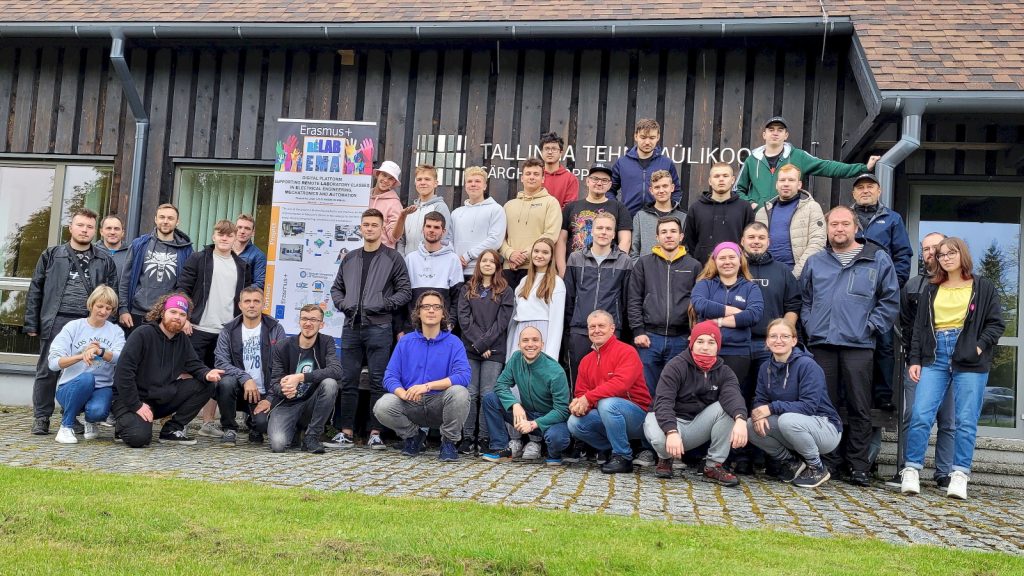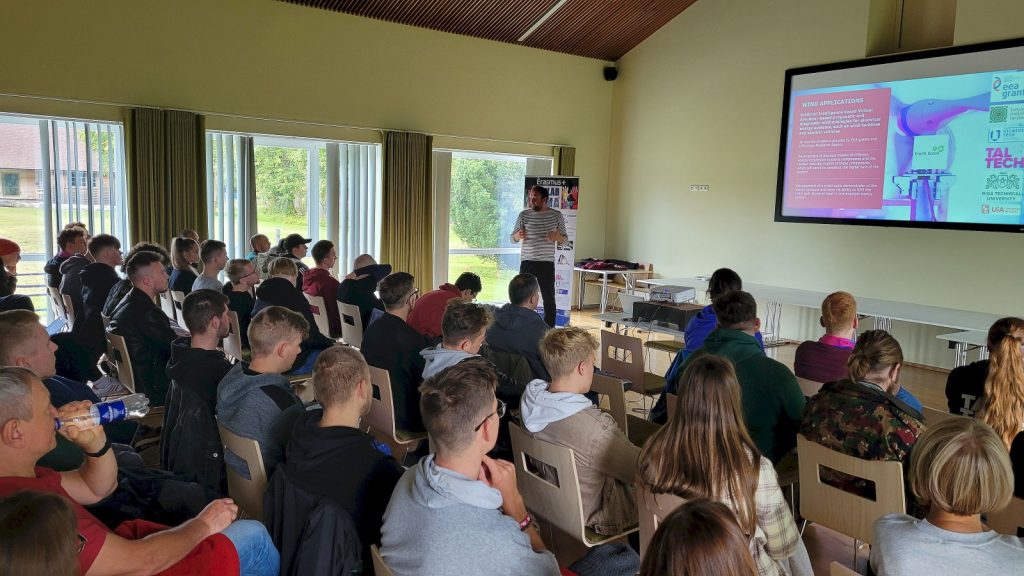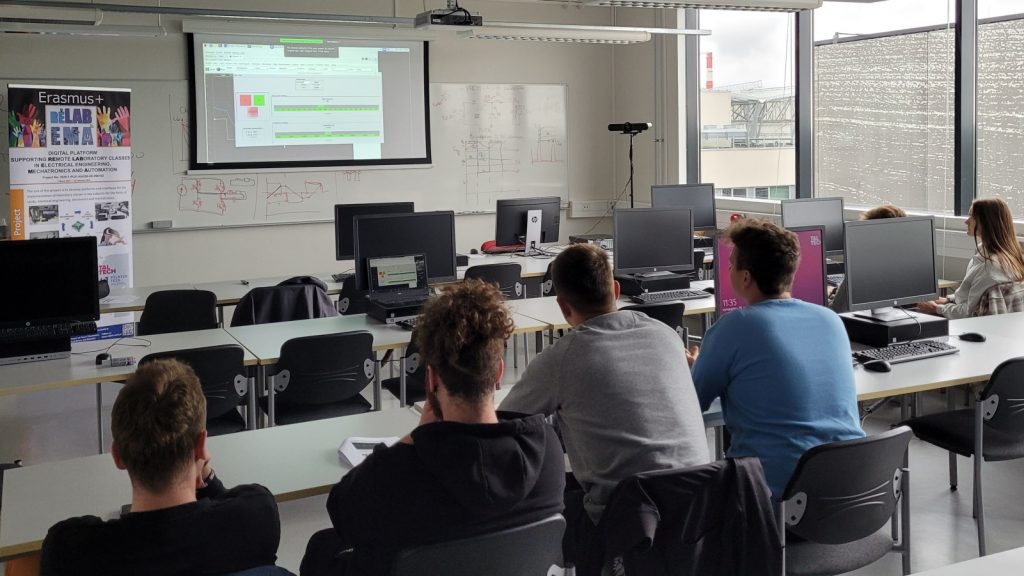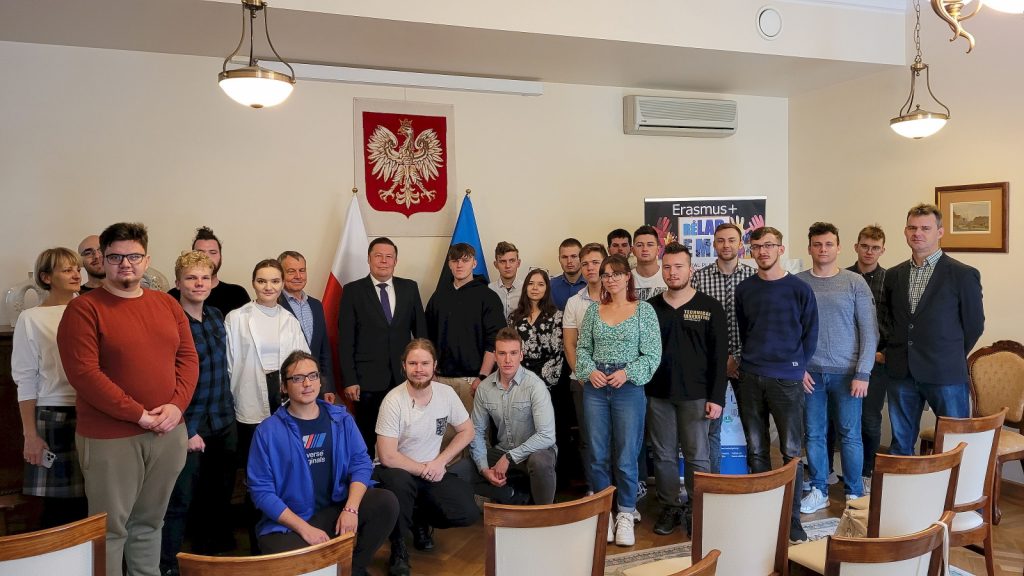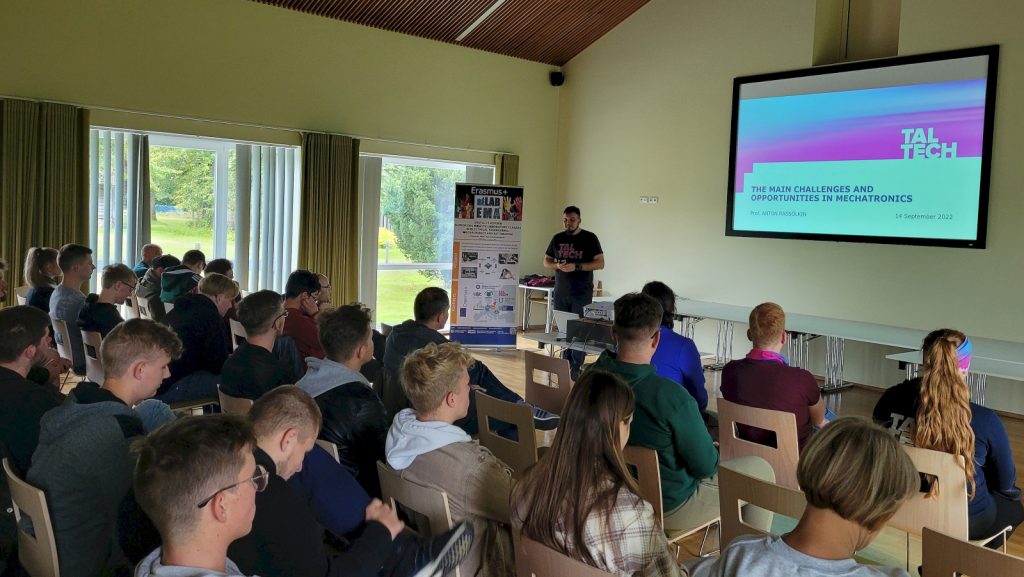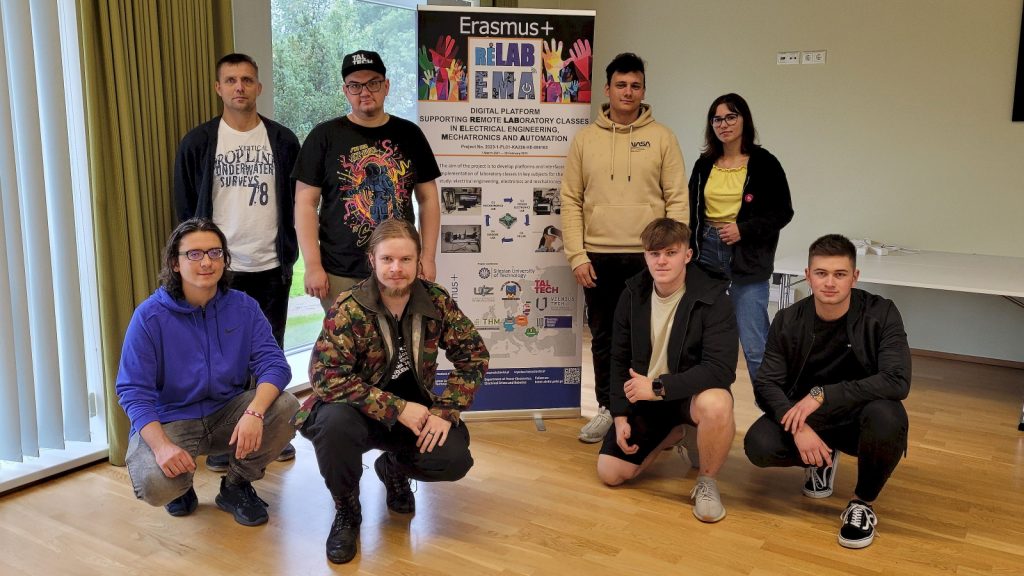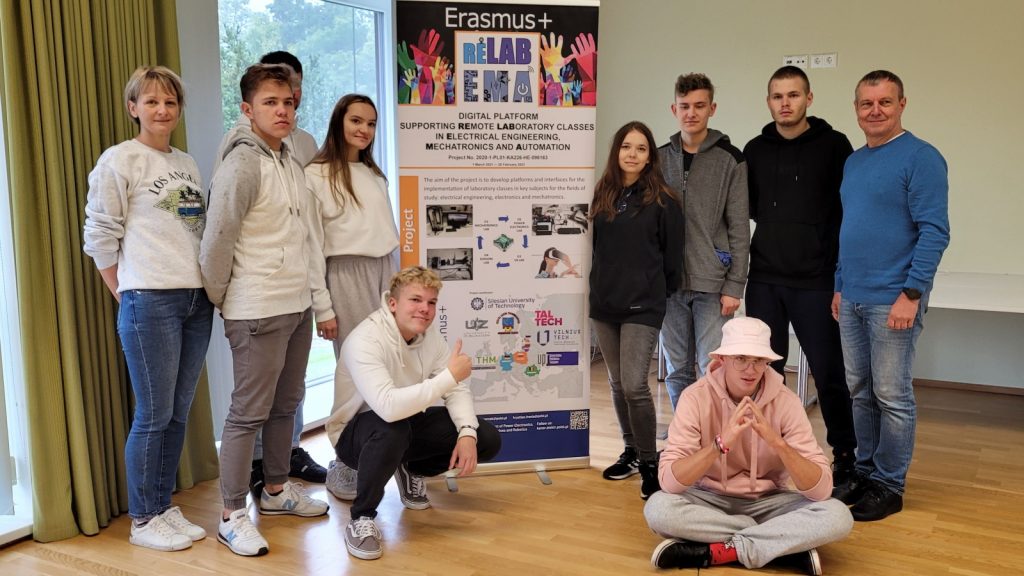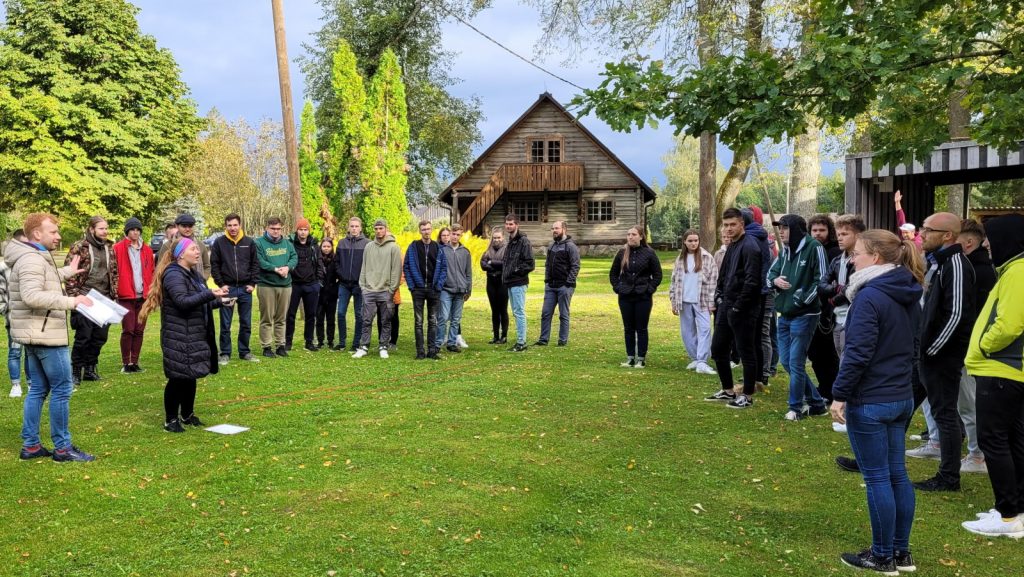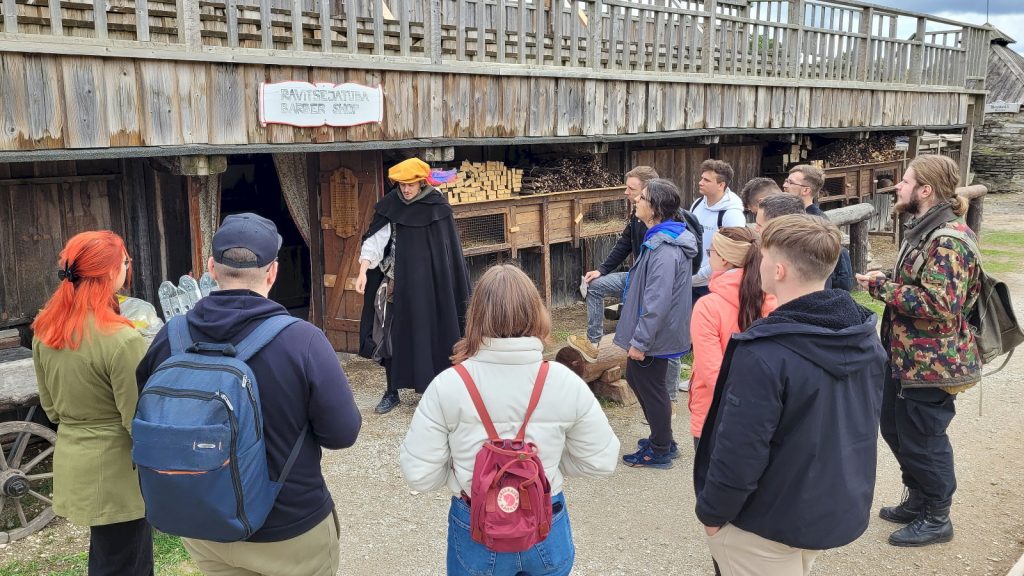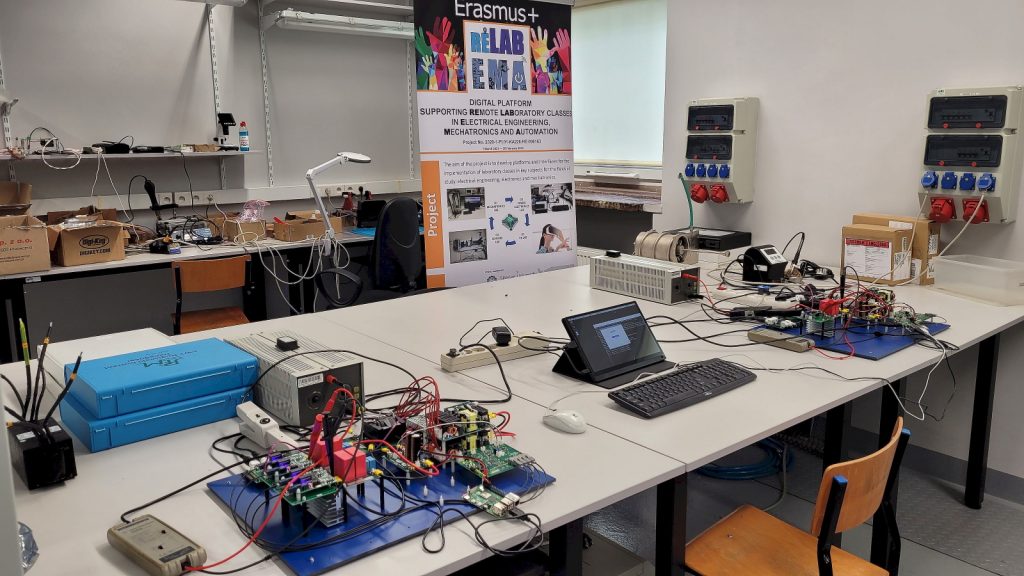On September 11th to 21st, 2022, the first pilot training of the RELABEMA project took place in Estonia. The workshop was dedicated to students of the project’s partner organizations and was aimed at the first practical test of the project results, which are remote laboratories for electrical engineering, mechatronics and automation. The workshop was attended by 40 students (including 34 students participating as international mobility and 6 students representing the host university of TalTech) and 15 teachers from all partner universities. The event was coordinated by prof. Anton Rassõlkin together with a team from the Electrical Machines Research Group.
The venue for the workshops was Tallinn University of Technology. Most of them took place on the main campus in Tallinn. Two days, participants spent also at the Särghaua Earth Science Center which is a separate small university campus located over 100 km from Tallinn. The main goal of the workshop was the participation of students in experimental laboratory exercises carried out remotely using four intellectual outputs, prepared in the project by partners. Students, divided into four groups, spent two full days carrying out individual laboratory exercises in turn: a drive control laboratory developed by the host university (also realized remotely), a power electronics laboratory developed by the Silesian University of Technology, a virtual reality laboratory in electrical engineering developed by Vilnius Gediminas Technical University and a laboratory of sensors and measurements developed by the University of Zielona Góra. The classes were conducted by lecturers of the indicated universities – some teacher remained in the laboratories, servicing the stationary part of the exercises, and some of them participated in the exercises, just like the students remotely.
An important part of the training program was visiting the campus and laboratories of the host university. These activities were allocated also during two full days of workshops. The first visit took place on the opening day of the meeting and concerned the general structure of the university, faculties, university centers and student infrastructure. The visit at the university was coordinated by Mrs. Anna-Maria Nizovtseva – a member of the International Relations Department. The second visit took place after the first series of lab exercises and was devoted to laboratories related to the subject of the project, i.e. mechatronics, electrical machines, electromagnetic compatibility, high voltage and others.
The third group of project activities were aimed to integrate participants. This part of the workshop was carried out mainly at the Särghaua Earth Science Center. Participants attended two lectures, by prof. Anton Rassõlkin on the role of mechatronics in modern technology and by Dr. Toomas Vaimann on diagnostics of electrical machines. As part of the integration activities, PhD students from TalTech and students from the Technical School Complex in Wodzislaw Slaski organized series of integration games, where participants had to face challenges not only of an intellectual nature, but also manual and dexterity tasks. Competition winners were awarded with occasional gifts. In the evening, there was a barbecue dinner and a traditional Estonian sauna, allowing you to explore a bit of the local customs.
During the workshop, there was also a time dedicated to get to know the beauty and culture of Estonia itself. The participants took part in a visit to Tallinn city led by Dr. Toomas Vaimann. During the tour, there were many interesting stories about local legends, history and geographical curiosities related to the capital of Estonia. Taking advantage of the free time on the weekend, a large group of participants visited the charming Rakvere Castle located halfway between Tallinn and Narva. Some of them also decided to visit the capital of Finland – Helsinki, 80 km away, using very efficient and comfortable ferry transportation. An important activity of this part of the project was also the meeting of participants from three Polish units: the Silesian University of Technology, the University of Zielona Góra and the Technical School Complex with the Ambassador of Poland in Estonia, Mr. Grzegorz Kozłowski.
At the end of the workshops, the participants filled out an anonymous electronic questionnaire indicating the directions of development and improvements of both the quality of laboratories developed in the project and the organization of the pilot workshops themselves. It is important to note that for the question about re-participation in such an event, all participants replied that they are interested in such an action. The second pilot workshops is also planned for organization under the project. It is planned for implementation in Poland, at the Silesian University of Technology in 2023.
